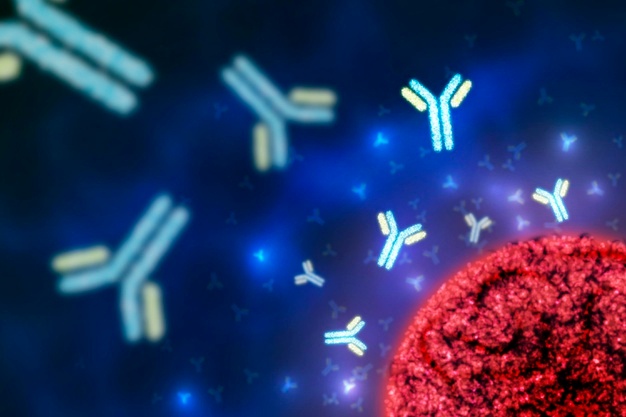In a new set of guidelines, WHO recommends antibody treatment comprising of casirivimab and imdevimab for high-risk COVID-19 patients.
Since the start of the pandemic, researchers have been on the search for an effective COVID-19 treatment. Their search has led to the development and approval of several different treatment options; one of them being the use of antibodies. Multiple trials assessing the efficacy of different monoclonal antibody combinations have been published in the past. Now based on these clinical trials, the World Health Organization (WHO) has updated their guidelines on antibody treatment. The updated guideline is available in the journal The BMJ.
As per the guidelines, the first recommendation states that the combination of casirivimab and imdevimab reduces symptom duration and hospitalizations in high-risk individuals. Such as the elderly, immunocompromised and the unvaccinated. This recommendation was based on data from three trials that have not yet undergone a peer review.
The human body naturally produces antibodies in response to foreign organisms. These antibodies can bind to the pathogen, destroying them. Furthermore, they survive in the body for an extended period; thus, protecting the body against any further infections by the same pathogen. As a result, researchers now turn to monoclonal antibodies for treating various diseases. Monoclonal antibodies are synthetically formed and target specific antigens. Both casirivimab and imdevimab are monoclonal antibodies that can neutralize the virus by binding to the spike protein. Thus, taking away the virus’s ability to infect cells.
The RECOVERY Trial
WHO based their second recommendation on data from the RECOVERY trial. The trial began last year and aimed to assess the effectiveness of a COVID-19 antibody treatment. Called REGN-COV2, the treatment also contained a combination of casirivimab and imdevimab.
The trial, that recruited over 9,000 hospitalized patients, has shown reduced deaths in those given the treatment. Moreover, the data from the trial also showed fewer hospitalizations and a lower risk of ventilator support among those treated with antibody therapy. Thus, based on this data, the WHO recommends the antibody treatment for patients with severe or critical COVID-19 who are unable to mount their own antibody response. The guidelines further state that these antibodies may have a reduced effect on the emerging variants.
WHO’s recommendations are part of a living guideline that aims to help doctors manage patients with COVID-19. Moreover, it is continuously updated based on peer-reviewed evidence. The current guidelines add to previous recommendations for use of steroids and interleukin-6 receptor blockers in severe patients.
Reference:
Bram Rochwerg et al, A living WHO guideline on drugs for covid-19, BMJ (2020). DOI: 10.1136/bmj.m3379





Casivirimab & imdevimab